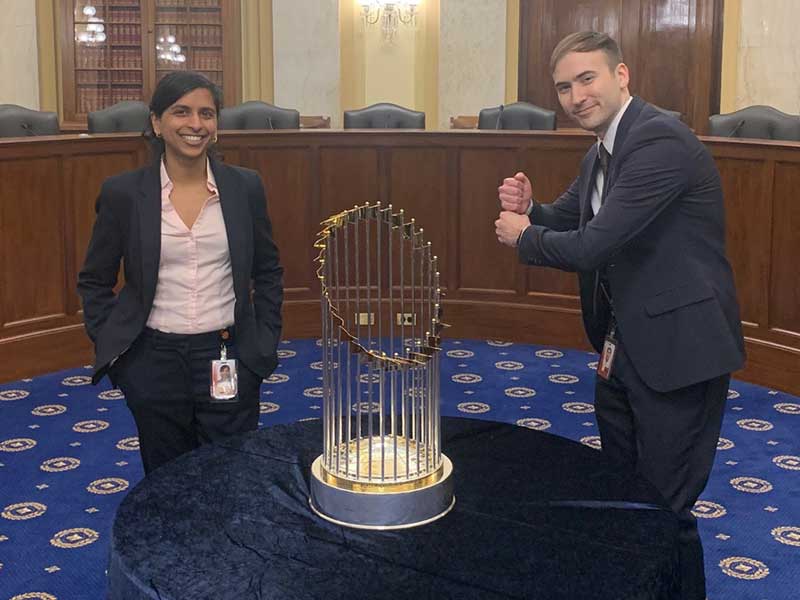Current fellow continues HELP committee work with COVID-19 changes, additions
April 15, 2020

Although his work atmosphere looks a little different, he and his team are working as diligently as ever to get their legislation across.
“COVID-19 slowly crept into the foreground over the course of January and February,” he said. “By the beginning of March, it was clear that it was going to dominate the legislative agenda and we’d only have the bandwidth to work on items that can be directly tied to addressing COVID-19.”
Since joining the staff of the Senate Committee on Health, Education, Labor and Pensions (HELP) last fall, Robb has been developing legislation to address surprise medical billing. Prior to the change in focus due to the pandemic, he and the rest of the committee were hoping to get another shot at a surprise billing vote in May. Once it became apparent that Congress was going to pass a massive COVID-19 stimulus package (the CARES Act), they tried to get their surprise billing language included but were unsuccessful.
Currently, Robb and his team are still working to get surprise billing protections into future COVID-19 legislation.
“Several large insurance companies — Cigna, Humana, Anthem — all pledged to waive member costs for COVID-19 testing and treatment at in-network facilities,” he said. “However, when you read the fine text, all of them also clearly state they cannot protect their patients from receiving large medical bills if they are treated at a hospital that is out-of-network. We’re trying to highlight these gaps in patient protection to establish the need for a law that prevents surprise medical billing in hopes that it’ll garner enough support to be lumped into a COVID-19-related bill.”
He's continuing to work on most of the issues he worked on before the pandemic began, but it’s “kind of as if an earthquake happened and the starting positions of everything moved,” he said.
“For example, prior to COVID-19, an across-the-board increase in federal funding to Medicaid programs was not on the table,” he said. “However, the pandemic created a need to act urgently, and the CARES Act included a 6.2% increase in federal Medicaid funding. We’re now hearing from experts that this isn’t nearly enough, and we’re being asked to consider further increases — in the 10-20% range.”
When Robb’s time as the 2019-20 fellow comes to a close at the end of the spring, Nimit Jindal, a Rutgers alumnus and community pharmacy PGY1 at UNC, will take his place as the next Congressional Healthcare Policy Fellow.